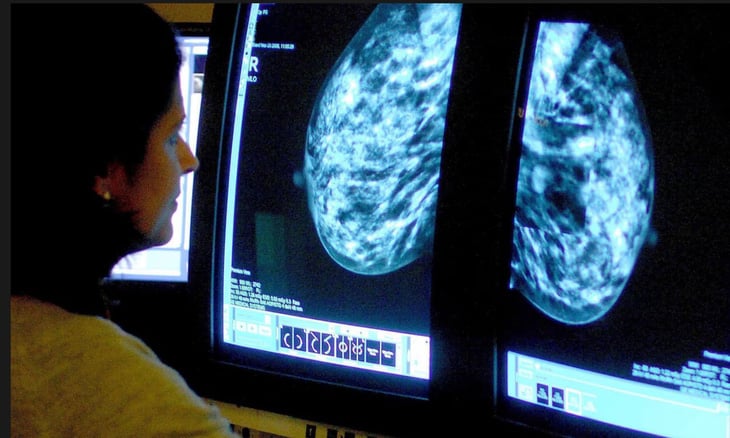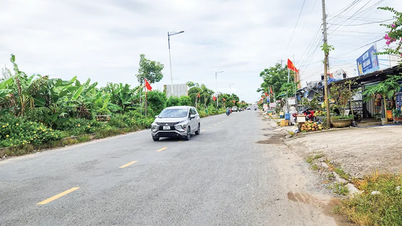
A doctor reads a mammogram result to a patient - Photo: Rui Vieira/PA
An international team of doctors, scientists and researchers has designed an artificial intelligence (AI) tool that can predict which breast cancer patients are at higher risk of side effects after treatment, including surgery and radiotherapy.
Technology being tested in the UK, France and the Netherlands could help doctors and patients make more appropriate treatment choices, the Guardian reported on March 20.
Every year, about 2 million women worldwide are diagnosed with breast cancer - the most common cancer in women in most countries. Thanks to better understanding, early detection and a variety of treatment methods, the survival rate of breast cancer patients is increasing.
However, some patients experience side effects after treatment such as skin changes, scarring, lymphedema - painful swelling of the arm, and even heart damage from radiation therapy.
"That's why we developed an AI tool to inform doctors and breast cancer patients about the risk of chronic hand pain and swelling after surgery and radiotherapy. We hope to support them in choosing radiotherapy treatments and reducing side effects," said Dr. Tim Rattay, working at the University of Leicester (UK).
The AI tool was trained to predict lymphedema up to three years after surgery and radiation therapy using data from 6,361 breast cancer patients. Patients diagnosed with a high risk of lymphedema may be offered alternative treatments or supportive measures during and after treatment, such as wearing an arm brace to limit swelling.
The tool was able to accurately predict approximately 81.6% of cases of lymphedema and correctly identify approximately 72.9% of cases of patients who would not develop lymphedema after treatment. The overall predictive accuracy of the tool was 73.4%.
The team is working to make the tool predict other side effects, including cardiovascular and skin damage, and hopes to enroll 780 breast cancer patients in the Pre-Act project, a two-year clinical trial.
 Vietnam can become an 'AI dragon'
Vietnam can become an 'AI dragon'Source






![[Photo] Magical moment of double five-colored clouds on Ba Den mountain on the day of the Buddha's relic procession](https://vphoto.vietnam.vn/thumb/1200x675/vietnam/resource/IMAGE/2025/5/9/7a710556965c413397f9e38ac9708d2f)


























![[Photo] General Secretary To Lam begins official visit to Russia and attends the 80th Anniversary of Victory over Fascism](https://vphoto.vietnam.vn/thumb/1200x675/vietnam/resource/IMAGE/2025/5/8/5d2566d7f67d4a1e9b88bc677831ec9d)




































































Comment (0)